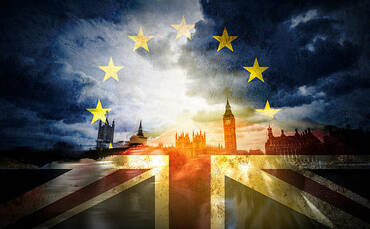The inevitable starts to happen. The relief that followed the avoidance of a no-deal Brexit, at a time when Boris Johnson was associated with lies about buses rather than lies about parties, always obscured the way in which the trade deal between Britain and the EU continues to would result in numerous new trade barriers.
The agreement promised a degree of broad regulatory and policy alignment on issues such as climate action and environmental hazards, but also left plenty of room for differences. For Brexiters, divergence meant sovereignty. But for companies accustomed to the smooth trade made possible by the single market and customs union, divergence meant compliance costs.
Four years later, the predictable and predicted consequences of that deal are starting to be felt.
This reality was highlighted this week by a new report from verification platform Similar Ethics, which calculates how the EU's sweeping Green Deal package of rules and regulations could impact £193 billion of British exports per year.
Again, this should all be clear. In pursuit of net zero targets, Brussels has introduced or is in the process of introducing a range of regulations, such as the Green Claims Directive, the Corporate Sustainability Due Diligence Directive, the Deforestation Free Products Regulation, the Ecodesign for Sustainable Products Regulation, the Empowering Consumers for the Green Transition Directive, the Textile Labeling Regulation and the Waste Shipment Regulation. This list is not complete. All these rules have consequences for companies in the EU, but also for companies in third countries that export to the EU. Britain is now a third country.
Westminster has its own version of many of these regulations, but even if it differs only slightly from Brussels counterparts, it will create compliance requirements at the border.
And then there is the impact of the EU's Carbon Border Adjustment Mechanism (CBAM), which will be felt from 2026. Britain may be planning its own CBAM, but that will come a year later and unless something drastic happens to UK carbon emissions. Prices will be set at a lower level. Companies that export to the EU will therefore face additional costs.
All this will be seized upon by Brexiteers and critics of climate action (many of them the same people) as evidence of Brussels' excess and the cost impact of green policies. But in reality it is an inevitable consequence of Britain's departure from the EU and its decision to opt for an economically self-damaging hard Brexit. And it will only get worse, not better.
Now that every country has committed to the Paris Agreement, it will need to introduce new policies and regulations to help drive the low-carbon economy and manage the clean energy transition. This week's intervention from the new COP Troika, which calls on all governments to start preparing now to submit enhanced National Climate Action Plans, or NDCs in the jargon, at next year's COP30 climate summit, is a reminder the right time to how a new wave of global climate policy is underway.
These national policies will inevitably vary from country to country, which will in turn lead to trade frictions as governments seek to protect their domestic industries and tackle the free rider problem by encouraging their partners to accelerate their own decarbonization efforts. make to speed up.
Rather than entering an era of trade liberalization, as the Brexiters promised, the world is entering an era of more complex trade barriers and cross-border protectionism. One of the most welcome aspects of Shadow Chancellor Rachel Reeves' Mais lecture this week was the way she made clear her understanding of the way the world has been changed by a combination of climate change and geopolitics.
The only way companies can navigate these choppy waters is to lean into them.
As Compare Ethics argued, the EU Green Deal is not going anywhere. It may repeat itself over time in response to political pressure and new trends, but the bloc is clearly committed to positioning itself as a global hub for robust environmental regulation and sustainable business practices. Other countries will follow suit – as evidenced by President Biden's new auto emissions rules this week and Brazil's early commitment to update its own NDC.
The only option for British companies wanting to export is to accept that they will have to monitor EU rules, over which Westminster no longer has control, and comply where necessary, often at significant cost. And in the meantime, it's better to stay ahead of the inevitable new climate regulations and rising carbon prices by investing now in decarbonizing their operations and embracing best environmental practices.
It turns out that Brexit means that Brexit was only part of the story. Who knows?
#Brexit #means.. #trade #barriers


